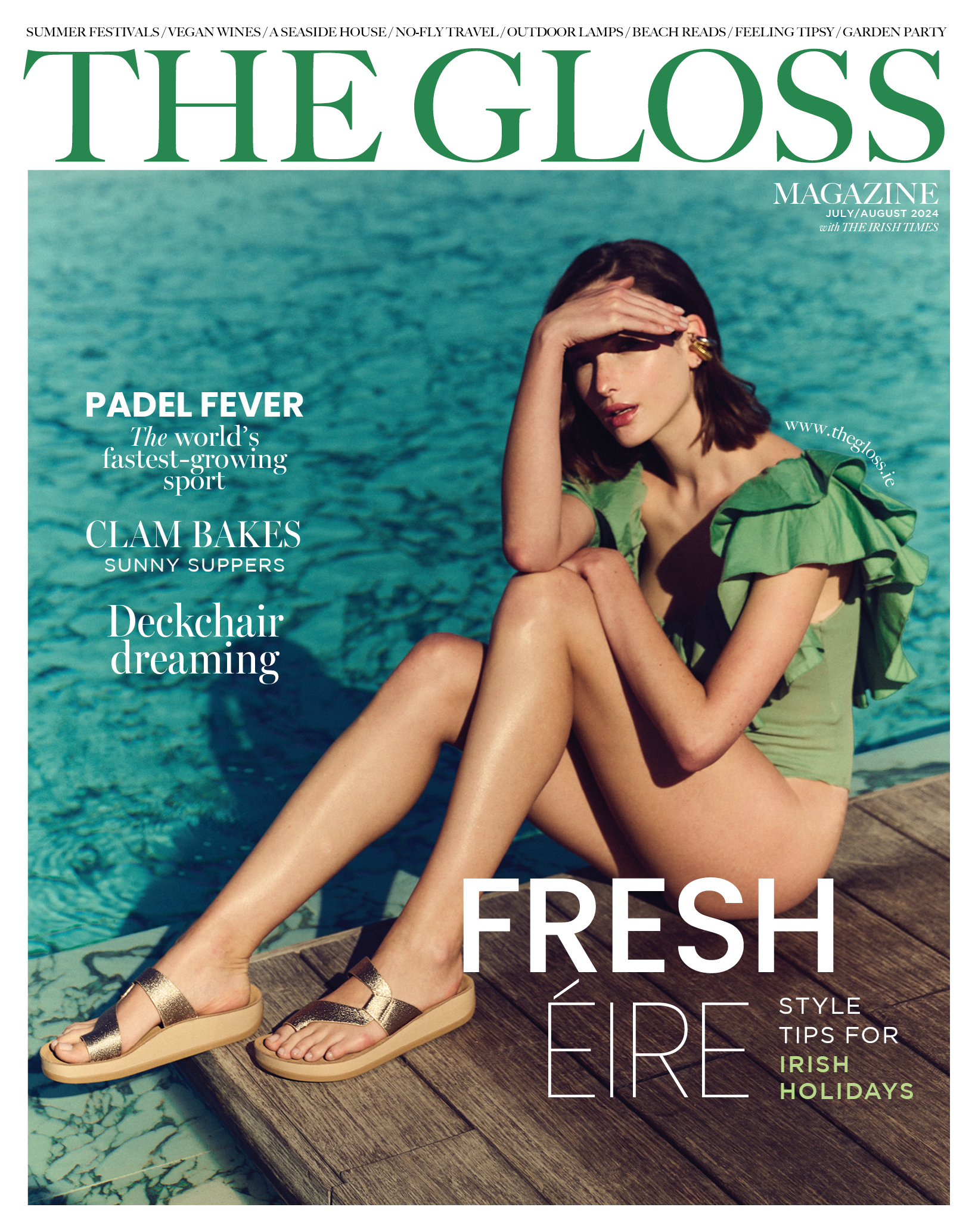Are you feeling anxious as September approaches and post-summer holiday blues kick in? A back-to-work reset can be front of mind for many at this time of year. Lynn Enright questions if a life or career coach can be helpful to get you out of a work rut …
Last year, on social media, I was chatting with a former colleague. She asked me how I was doing and when I told her that I was well but feeling a little creatively stuck, she promptly encouraged me to become a paying participant in her creativity course. I was taken aback. I had thought we were in touch as acquaintances – but here she was trying to convince me to part with a few hundred euro in a formal agreement. I made my excuses and forgot about the encounter – but over the next few months, I began to notice that more and more of my peers were turning into experts or gurus, offering classes and courses, sessions and bundles. Suddenly, it seemed, I knew a great many life coaches.
In conversations with friends, I realised that many of them were turning to coaches, to help them navigate a career change, or a new wellness regime, or a divorce.
It appears that it’s not just me and my acquaintances. It’s difficult to get reliable data on the number of coaches operating in Ireland and internationally, as the industry is completely unregulated – but in 2020, a report from the US-based nonprofit International Coaching Federation showed that between 2015 and 2019, the number of professional coaches worldwide increased by 33 per cent.
The pandemic further turbocharged the business of coaching, with the curtailment of in-person services and support groups coinciding with a period of introspection and increased mental health problems. Life coaching is now believed to be one of the fastest growing careers in the US, according to the data there, and while it’s hard to get the figures, it’s reasonable to assume that it’s booming in Ireland and the UK too.
A coach may have particular expertise or qualifications – but that is not a prerequisite: anyone can call themselves a coach, and in 2024, you can engage a coach to work with you on any number of dilemmas you might be facing.
Got an idea for a book but don’t know anything about the publishing industry? Work with a writing coach. Suffering from insomnia? You need a sleep coach. Going back to work after maternity leave? You could try a motherhood coach, or a career coach, or a life coach. Coaching can mean a lot of things – but essentially it involves a client paying to spend time with someone who will guide them through a process they find challenging, or wish to understand better.
Rosamund Dean is a journalist and author, who recently trained as a health coach, gaining a certificate from the Institute for Integrative Nutrition, a US organisation that positions itself as the world leader in training health coaches.
Dean, who was diagnosed with breast cancer in 2021, now works with people who have or have had breast cancer, helping to guide them through their treatment as well as encouraging them to live healthier lives. In her coaching, which is provided via a London charity, she touches on nutrition, activity levels, and the emotional and psychological reasons why someone might not be living as healthily as they would like to be. As a health coach, she covers “basically everything”, she says.
“If you go to a psychologist or a personal trainer or a nutritionist, then those people are experts in their fields,” she points out. “The thing about health coaching is, it’s much broader.” A health coach can take a holistic view of your circumstances, she says, in a way that a medical professional or expert might not.
Working with a coach may be transformational for some people, offering accountability and structure as they work towards their goals – but coaches are not the people to turn to with mental health conditions and clinical issues.
Dublin-based writing coach Geraldine Walsh sees her work similarly. She works with clients on what she calls “the technical side” of the process, figuring out a structure for a book or advising on the ins and outs of the publishing industry. But a large part of the job is to be “a writer’s cheerleader”, she says.
“Writing is such an isolating activity that we can get very much stuck in our heads, listening to the rambling voices that nitpick at every word we put on the page,” says Walsh. “We are our hardest critics. I’m there for when those voices are too loud, or preferably beforehand, to build strategies for a healthy writing mindset.”
Accountability is a huge benefit of having a coach, Dean points out. The vast majority of people who call themselves coaches cannot make a clinical diagnosis or award you with a professional certification – they are simply not qualified to do so – but they can help to provide a structure as you work towards your goals, whatever they might be. “Just having a person to check in with is a really big part of why coaching can be successful,” says Dean.
The services coaches offer can sometimes seem like the kind of thing you should be able to rely on friends and family for – help with writing your CV or introducing your baby to solid foods, for example – but friends and family might live hundreds of miles away, or they might be too busy with their own lives and families.
A growing income inequality, and the way that the jobs market is playing out amid an unstable global economic situation, may also be contributing to the coaching boom. A small proportion of people have lots of money but little time – and, increasingly, they are turning to a cohort of coaches who have abandoned, or been pushed out of, more traditional careers.
Dean continues to work as a journalist, producing her own newsletter on wellness and contributing to major news outlets, but she says that she sees health coaching as “another string to my bow, in a world where journalism is not paying what it used to”.
Neha Ruch founded Mother Untitled in New York in 2017 as an online community for mothers, with a particular focus on stay-at-home motherhood and the priority shifts that often occur during parenthood. Recently, she has added an “experts” directory, with the aim of connecting mothers to coaches and mentors, including financial advisors, marital therapists, maternal wellness therapists and career coaches.
“We wanted to encourage women to get the support they need to thrive,” she says. “We’ve been made to believe that the village will just appear but the reality is our lives are more spread out than ever before. So, when we start thinking about paid solutions we feel shame in investing in outside help.”
Ruch acknowledges that not every mother can afford to access a coach – and “this is where the digital community has a lot to offer by providing free resources, content and expertise”, she says. If you can’t afford to engage the services of a coach, you can likely find useful information on the subject via their Instagram or TikTok pages.
Ruch counsels that people should be mindful of the qualifications and expertise of the coach whose work they are consuming. It’s good advice for anyone using the services of a coach in any capacity.
“If you are looking for a coach, it’s probably a good idea to seek out a recommendation,” says Dean, who says that the industry can be “like the Wild West”.
In an unregulated industry, unqualified and unscrupulous coaches can prey on people who are in a vulnerable position, as they seek help for problems that may leave them feeling exposed and unsure.
Given that there is no requirement to have any kind of professional qualification to call yourself a coach, bogus science and woo-woo sensibilities thrive. There are career coaches who will assist you with the nitty gritty of writing a good CV and cover letter, and then there are those who will advise you based on a tarot card reading – you will have to decide for yourself which approach suits you, and is worth shelling out for.
Do your research and decide on the type of coach and outlook that would work for you and don’t be tempted to sign up to several sessions with a coach before you have spoken to them in person, or over the phone. Interrogate any potential coach on how the relationship and sessions will operate.
“I would always advise a writer to chat with a potential coach before committing to anything,” says Walsh. “Find out how you will work together. Is it through email and phone calls or some other platform? How much access will you have to the coach? Is there contact between sessions and how long is the commitment?”
Working with a coach may be transformational for some people, offering accountability and structure as they work towards their goals – but coaches are not the people to turn to with mental health conditions and clinical issues. They can offer insights and support when you find yourself stuck or dissatisfied, and perhaps most importantly, they can be there for you, as you figure things out for yourself.
I’m a cynic, could sessions with a life coach change that?
My cynicism regarding coaching was very much intact when life coach Fiona O’Connor invited me to start the session (which we were conducting over Zoom, although she prefers to work in person) by lighting a candle.
Dublin-based O’Connor had offered to work with me over a few weeks so that I could get a better insight into the kind of coaching she conducts. After a career in recruitment, she now works with individuals and corporations, offering guidance to executives and leaders, as well as people who feel stuck in their careers and crave a change.
I wanted to talk to O’Connor about my feelings of creative and professional stagnancy… Could they be linked to the responsibilities that can threaten to overwhelm parents in mid-life? Could it be that the, well, cynicism that has served me well as a journalist may prevent me from chasing joy?
I was surprised by how quickly we got down to the nitty-gritty and I was impressed by her ability to engage on a variety of topics: she was smart and experienced, and she wasn’t afraid to share personal anecdotes to help shed light on my problems. She flitted from approach to approach, quoting famous self-help gurus and offering snippets of advice (some of which were more evidence-based than others).
I felt myself bristle as she suggested making dietary changes relating to a reproductive issue – “Well there’s not much evidence to support that,” I pointed out – but I was totally sold by her demonstration of how to colour-code my calendar to discourage procrastination.
O’Connor was empathetic but straight-talking, unafraid to call me out when she felt I was prevaricating. I continue to be cynical about a lot of things – including the booming coaching industry – but weeks after our sessions, I heard her voice in my head as I worked, and I noticed myself becoming more productive and focused. She didn’t fall for my lame excuses about not having time – so why should I? She urged me to be more compassionate towards myself – so why shouldn’t I?
For more information on the coaches featured, see www.rosamunddean.com, www.geraldinewalsh.com, www.motheruntitled.com and www.fionaoconnorcoaching.com.




